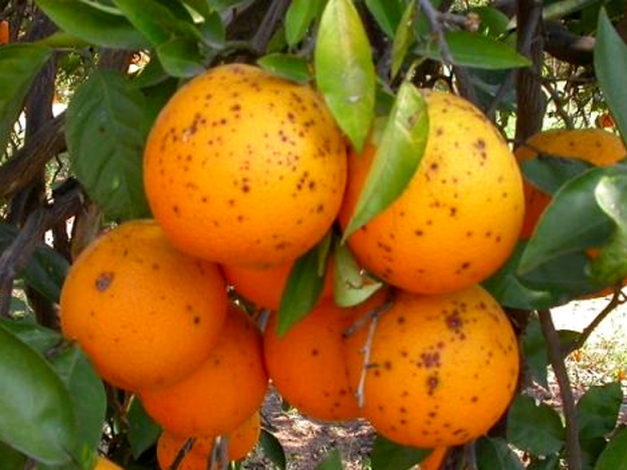La Unió Llauradora has denounced that the number of interceptions of citrus fruits imported from South Africa to the EU with harmful organisms this year has tripled the number of interceptions of the previous year. Interceptions have gone from 12 rejected shipments from January to August 2022 to 37 shipments in the same period of this year.
"The amount of interceptions made in August of this year is really scandalous. There have been 11 interceptions from South Africa and 4 interceptions from Zimbabwe, a country that is included in the Association Agreement between the European Union and Southern Africa. It should be noted that all the rejections are due to Phyllosctita citricarpa, the fungus that causes the dreaded citrus black spot disease."

"The high detection of the disease in citrus fruits from South Africa highlights the failures of the control system at origin in the African country. Consequently, there are no guarantees that the fruit issued comes from citrus areas free of this type of quarantine pests or that a good post-harvest control has been carried out."
"Given this situation and the risk it entails, La Unió requests the automatic suspension of imports from third countries, such as South Africa, that cannot guarantee the phytosanitary safety of their shipments before a pest that can't be eradicated enters the EU. In addition, it's always the same countries that head the list of interceptions. In this regard, it's worth noting that there's been a constant interception of citrus fruit with Phyllosticta citricarpa, as well as the Thaumatotibia leucotreta moth, during the last campaigns and that it's necessary to prevent fruit with these pests from entering the EU and affecting Europe's citrus cultivation. The organization also insists on extending the cold treatment to mandarins to prevent the entry of the false moth and reinforce measures at source to control diseases not yet present in European citrus cultivation."
Egypt, another country in the spotlight
Egypt is another country to watch over citrus imports. It has doubled its citrus imports to European markets. Egypt went from exporting a total of 86,079 tons of citrus to the EU in 2022 to 179,012 tons in 2023. If we limit the scope to Spain, Egypt went from exporting 8,158 tons of citrus in 2021 (there are no data from last year) to 15,806 this year.
Thus, La Unió called on the Minister of Agriculture, Luis Planas, "to strengthen our borders in the face of the danger posed by the possible entry of the black spot, a danger that is growing due to the considerable increase in citrus imports from Egypt."
For more information:
La Unió
https://launio.org
